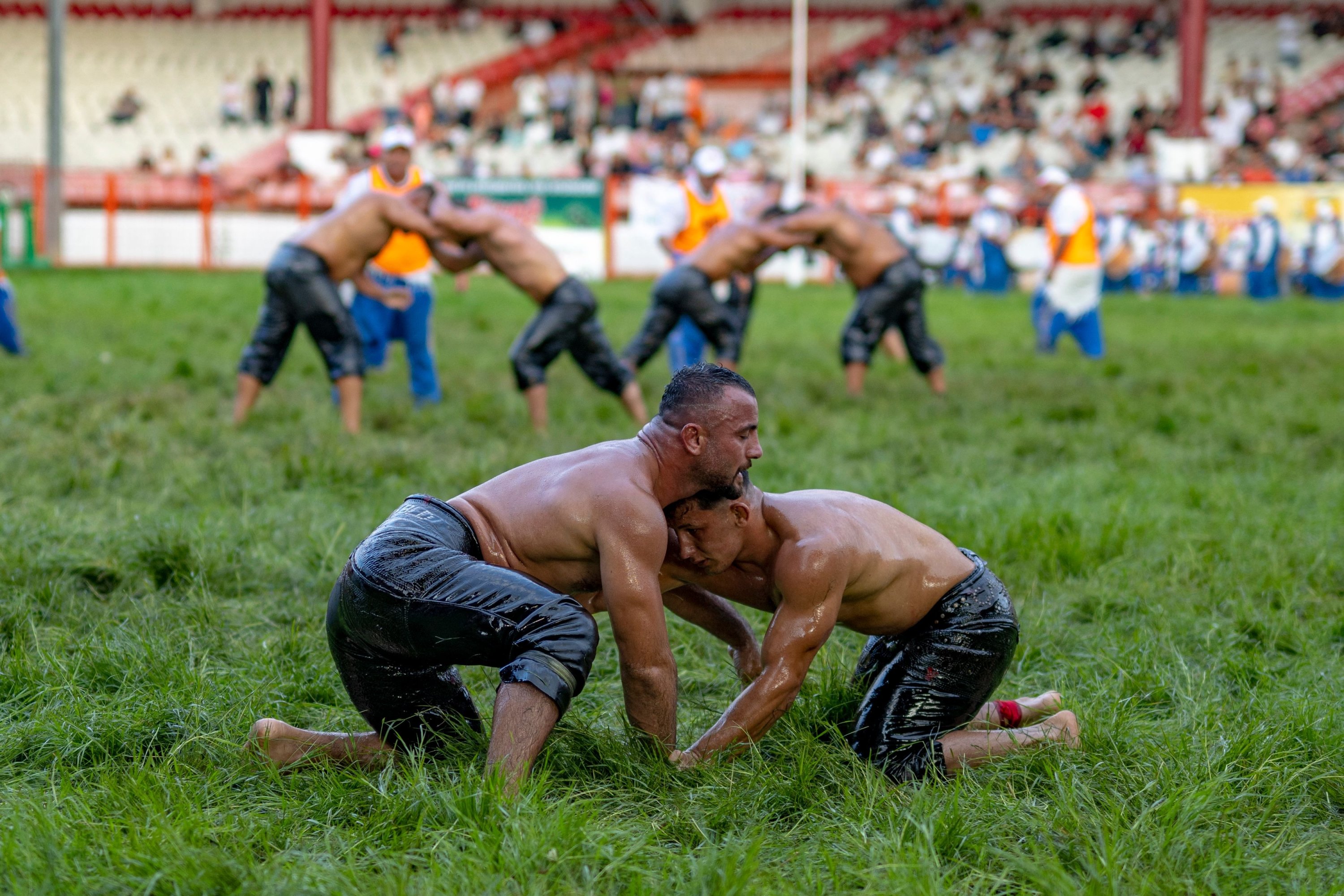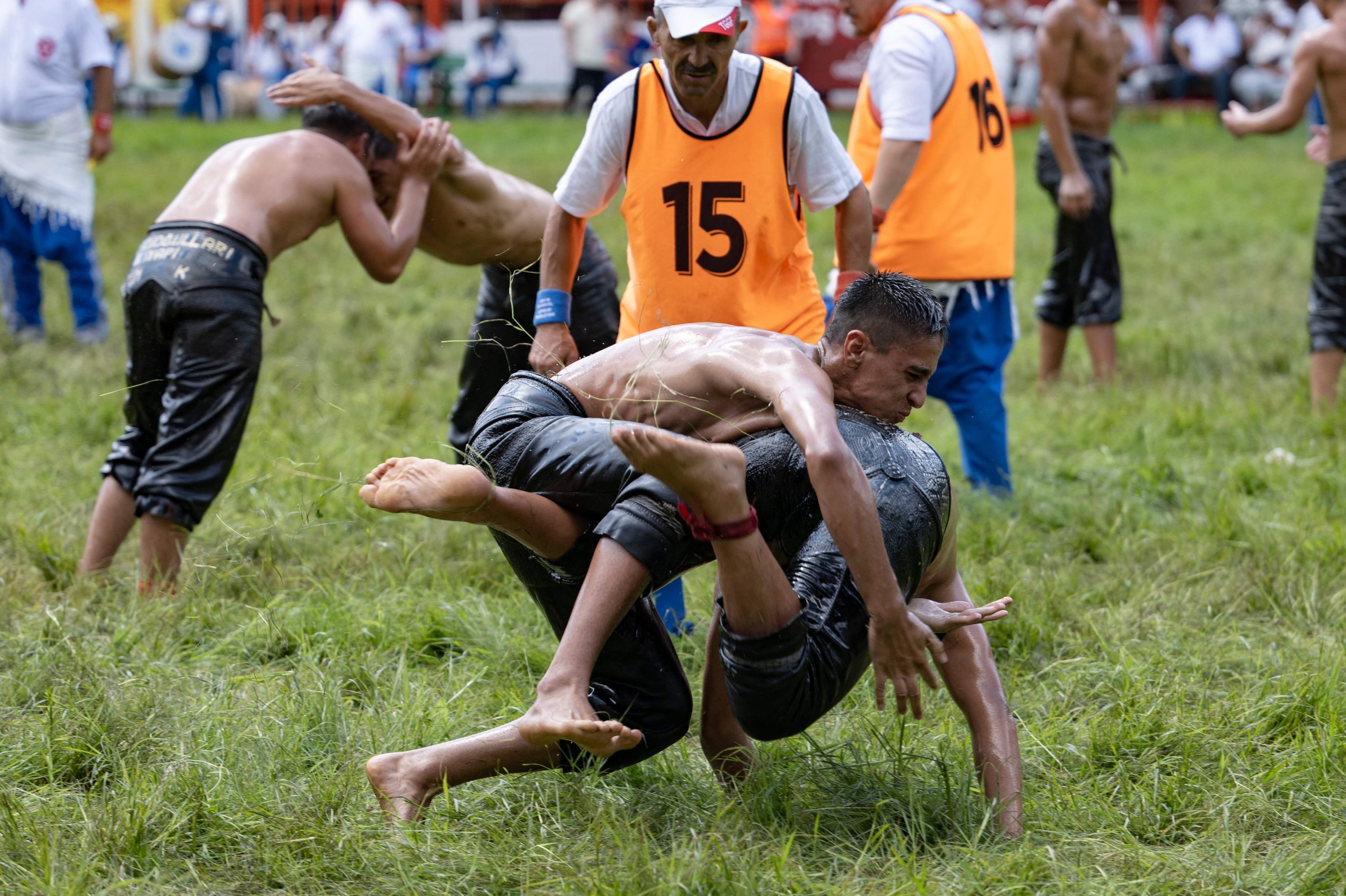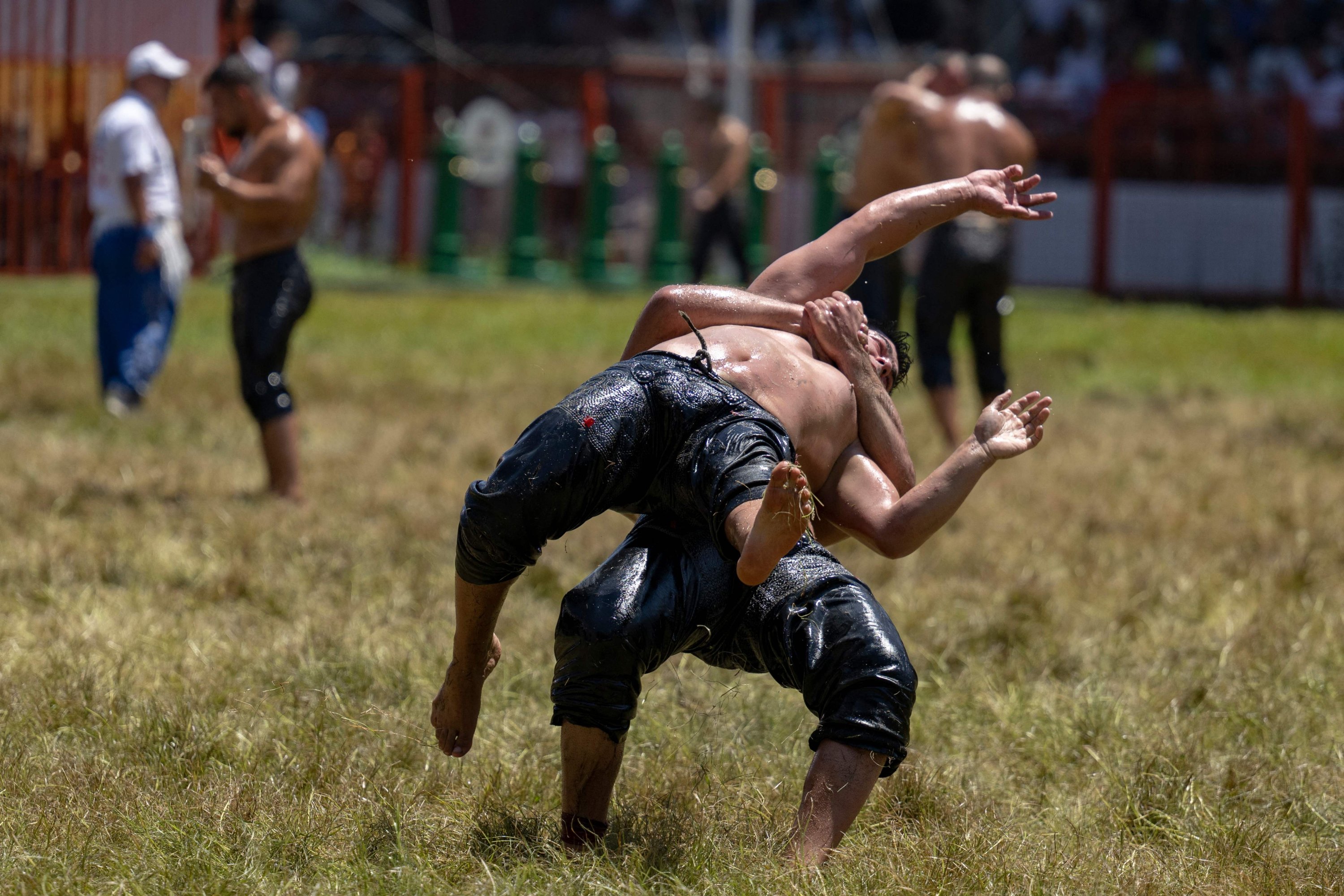© Turkuvaz Haberleşme ve Yayıncılık 2026
With their torsos gleaming with oil and sweat, wrestlers grapple and vie for gold and glory in a time-honored Turkish tradition dating back to the Ottoman era.
Each July, competitors from far and wide converge at the Kırkpınar tournament in northwest Türkiye, a revered national and international event recognized by UNESCO in 2010.
Victory in this intense competition promises Turkish sporting immortality.
Yet for the defeated, it means heartache and another year of relentless training until their next chance arises.
"This is our Olympic Games," said Murat Kalender, one of the dozens of contestants this year.
With arms and abs resembling hewn stone, the 27-year-old warmed up in the shade of his van as he prepared to take the field for the sixth consecutive year.

"Our ancestors fought here," he told Agence France-Presse (AFP), "and carrying on their legacy doesn't come without sacrifice."
Turkish oil wrestling is grueling and steeped in history.
Legend has it that Edirne, the capital of the Ottoman Empire until the conquest of Istanbul, has hosted the Kırkpınar tournament annually since 1357.
The festival's origins are traced to two soldiers, believed to be brothers, who wrestled each other to the death.
Today, while matches do not end in fatalities, the attire worn by a "Pehlivan" – meaning brave warrior in Persian – has remained largely unchanged.
Despite its cost, olive oil remains the sole permissible lubricant, enhancing balance as much as sheer strength during bouts.
The wrestlers wear only buffalo hide trousers, studded and pre-oiled, weighing a hefty 10 kilograms (22 pounds).
There are no zippers; visitors to Kırkpınar may witness wrestlers contorting to don their gear, unclothed.
"A belt would provide an opponent with something to grasp," said Melih Ozturk, an 18-year-old participant, as he secured his trousers with cords below the knees ahead of his match.
In the scorching Turkish summer, fighters lined up to face their sparring partners, the sun reflecting off their oiled foreheads.
The objective is to leverage an opponent's strength and weight against them, forcing them to the ground and pinning them on their back.
A crucial element of any successful bout is limiting an opponent's leverage.
The wrestlers slapped, pushed and pulled in their attempts to secure holds on their rivals' necks, shoulders or legs, aiming for decisive maneuvers.
Each pair competed under the supervision of a referee clad in blue and gold, ready with white towels should wrestlers request them.
Competitors could also request additional oil if they felt insufficiently slick.

By the bout's end, wrestlers' skin reddened from constant grappling, their vision obscured by sweat.
At the highest level, matches can extend close to an hour.
"A great fight is when both competitors give their all," said Hakan Orhan, one of the tournament's 120 referees.
A former wrestler himself, Orhan turned to officiating "to stay connected to the sport," which now includes training his son.
"I intervene in case of improper positioning or when wrestlers become uncontrollable or aggressive due to being stuck," Orhan said.
Such occurrences are rare, as mutual respect among competitors is paramount.
The victor customarily congratulates their opponent, often showing deference by kissing the hand of elder competitors.
Atop the 14 classes of Pehlivan wrestlers are the Başpehlivans, who earn their livelihood from wrestling and train year-round.
"Everyone here dreams of becoming champion," said Hamza Özkaradeniz, a 32-year-old Başpehlivan with two decades of wrestling experience, making his Kırkpınar debut.
"But we all aspire to claim the golden belt," the tournament's top prize, which includes a TL 550,000 ($17,000) bonus – over 30 times the minimum wage.
This year's winner, Yusuf Can Zeybek, clinched the prestigious prize in 52 minutes for the second consecutive year.

A third consecutive victory at Kırkpınar grants a wrestler lifelong ownership of the gold belt, last achieved in 1997.
Not every wrestler achieves such acclaim.
Defeated wrestlers often collapse on the grass, overwhelmed with despair or fury, or require hospitalization for injuries sustained.
Yet despite the physical toll, wrestlers remain devoted to their sport.
"I've undergone shoulder surgery," Ozkaradeniz said, noting a prior Achilles tendon rupture.
His litany of injuries includes "fractured ribs, torn knee ligaments ... and three wrist surgeries."
"Yet we love it nonetheless."
